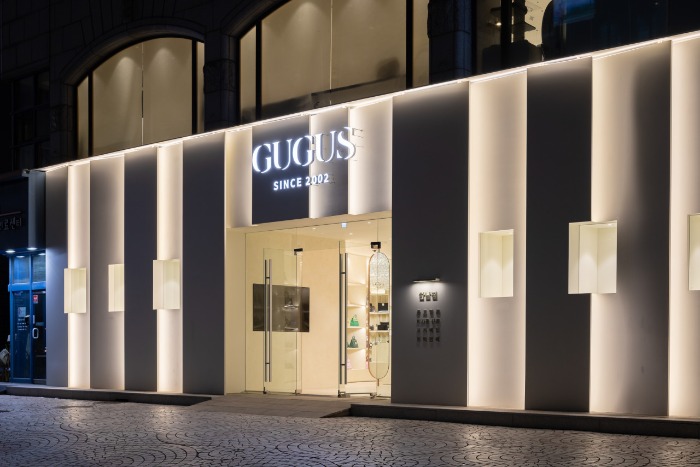
Gugus, South Korea’s largest online retailer of secondhand luxury goods, posted a double-digit growth in revenue and transactions in the first quarter of this year after a robust 2023, bucking the spending slowdown trend in the high-end goods market.
In the first quarter of this year, Gugus saw transactions on its platform jumping 16% on-year to 62.4 billion won ($46 million), its highest-ever for a single quarter. Clothes and jewelry led the sales growth, up 24% and 38%, respectively.
That followed a 19.7% rise to 215.3 billion won in merchandise transaction at its platform in 2023, compared to 179.9 billion won in the year prior.
“Due to the high prices of luxury products, secondhand transactions are becoming more active in high-end brands such as Hermes, Louis Vuitton and Chanel,” Kim Jeong-nam, chief executive of Gugus, said in a recent interview with The Korea Economic Daily.
“Considering the growth pace, transactions (at Gugus) will surpass 300 billion won this year.”
In 2023, its revenue spiked 46% to 58.9 billion won ($43 million) from the previous year’s 40.3 billion won.
That was in stark contrast to over a 50% slide in sales in domestic luxury goods platforms such as Trenbe and Balaan. They suffered million-dollar operating losses last year, hit by the spending slowdown amid stubborn inflation and high borrowing costs.

Gugus has been leading the trend of buying used luxury products online, utilizing its 26 brick-and-mortar stores nationwide.
It has opened stores in front of large department stores frequently visited by luxury buyers in affluent places in Seoul and other metropolitan cities in the country.
On its online platform, a consumer can choose an item to purchase and pick it up at a nearby Gugus store within a day or two.
Conversely, a luxury brand product owner can sell the item at one of its offline stores after having it appraised immediately.
“Customers want to personally look over the items before purchasing. In this regard, Googus’ offline stores and online platforms are creating synergy,” Kim said.

DIRECT SOURCING
Since its foundation in 2005, Gugus has directly sourced used luxury items, determined their authenticity and appraised prices in three stages, which Kim bragged about as one of its competitive advantages.
It has a professional appraisal team of 75 people, the largest in the industry.
It has accumulated product appraisal data amounting to 14 million cases.
“There are frequent disputes over whether it is authentic or counterfeit on secondhand goods platforms such as Danggeun Market and Bunjaejangtae, where transactions take place between individuals. But at Gugus, there are almost no such issues because we thoroughly verify products,” Kim added.
Last year, more than 60% of Gugus transactions were ultra-high-priced products such as Hermes, Louis Vuitton, Chanel, Cartier, and Rolex.
“At Gugus, Gucci and Prada are mid- to low-priced brands.”

OVERSEAS EXPANSION
To expand its offline footprint, it is set to open its first outlet within a department store at AK Plaza in Suwon, Gyeonggi Province, next month.
To attract foreign customers, Gugus is developing English, Japanese and Chinese-language sites.
It is also expected to become South Korea’s first used luxury goods platform to sell products on foreign online marketplaces, including Tmall, a Chinese online retailer operated by e-commerce giant Alibaba Group.
Last year, it joined hands with used luxury goods companies in Japan and the Middle East to advance into the business-to-business market.
“Used luxury goods traded in the domestic market are cheaper than in other countries because of relatively slower demand, so we will aggressive attract foreign customers with the price competitiveness.”
In 2023, its net profit slipped 5.6% to 6.8 billion won, versus 7.2 billion won in the year prior, after booking larger depreciation costs than in 2022.
Write to Sun A Lee and Ji-Yoon Yang at [email protected]
Yeonhee Kim edited this article
